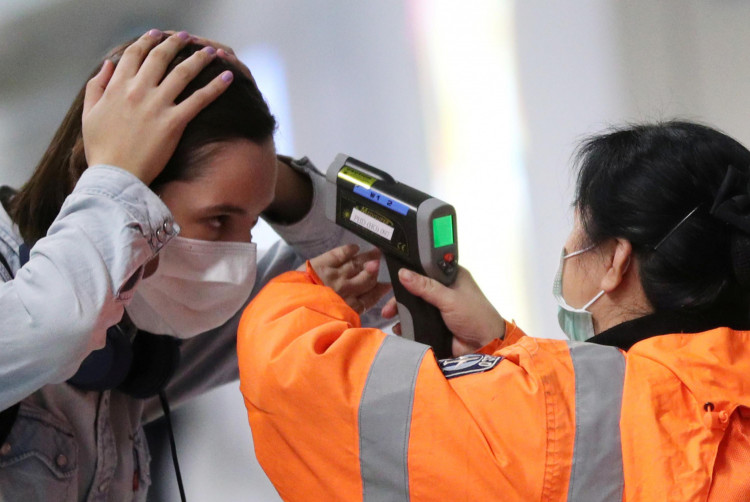Hong Kong announced early Friday that it will station a team of volunteers to boost measures to forcibly place all arrivals from China under strict quarantine, as part of new efforts to prevent the spread of the coronavirus.
The dense investment center has disclosed that those arriving from the mainland starting Saturday will be subjected to 14-day compulsory quarantine in line with the city's ramped up actions of its fight against the outbreak.
Hong Kong authorities have also warned that anyone caught violating the rules of quarantine will face a jail term of up to six months. Officials are also optimistic the new measures will contain all cross-border traffic while allowing Hong Kong to remain supplied with food and other important commodities as the virus has claimed the lives of over 600 people and continues to wreak havoc in other parts of the world.
Those with no signs of the fever or other symptoms will be mandated to spend two weeks at their home, or at hotels they have booked. Visitors with nowhere to stay in Hong Kong will be accommodated through designated quarantine centers.
In a press briefing, Hong Kong Chief Secretary Matthew Cheung Kin-chung said anyone caught breaching the new regulations will be fined up to HK$25,000 (US$3,200) or sentenced to six months in jail.
Authorities divulged that there had been an increase in visitor numbers from mainland China since Chief Executive Carrie Lam Cheng Yuet-ngor made public Wednesday that new rules would be imposed. The day after, 145,140 people were reported to have crossed the border, a 30 percent rise compared from the previous day.
Hong Kong reported its 25th and 26th cases of coronavirus infection last Friday, as the Chinese government reported 722 deaths in the mainland, including one American, while a Japanese man also died with coronavirus-like symptoms.
The new rules have been implemented under a national emergency law that allows city officials to bypass the legislature during an outbreak. Exemptions would be carried out for a number of important positions, including shipping and flight personnel, including cross-border vehicle drivers to ensure food and basic goods keep coming into the city.
A series of panic-buying incidents has gripped the heavily-populated metropolis during recent days, with grocery shelves becoming empty of important goods like rice, pasta, rubbing alcohol, and toilet paper.
Meanwhile, there was a bit of good news late Friday when officials of the World Health Organization revealed fewer infections were reported in China in the past two days. However, WHO director-general Tedros Adhanom Ghebreyesus said caution must be exercised especially on information being spread online about the outbreak.






